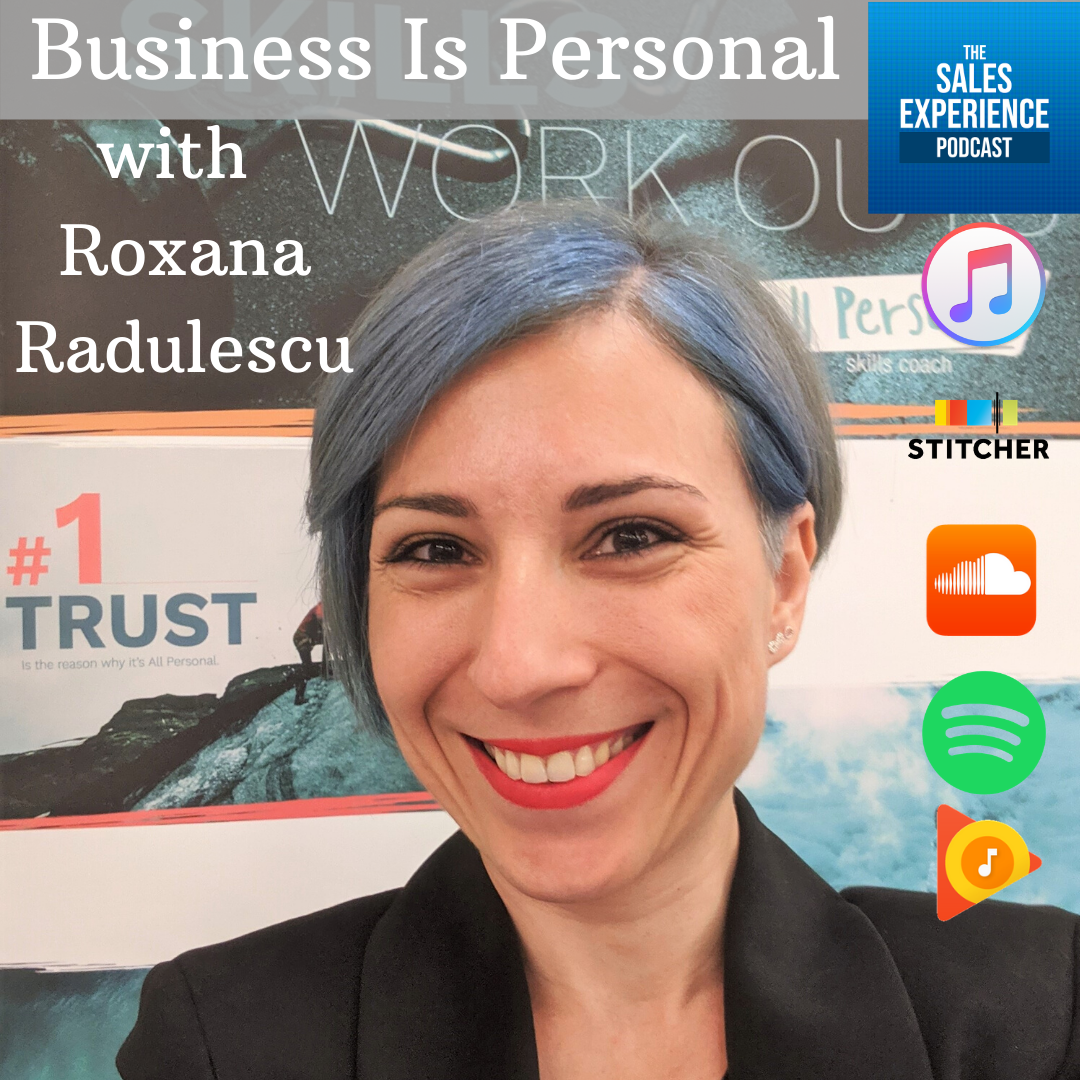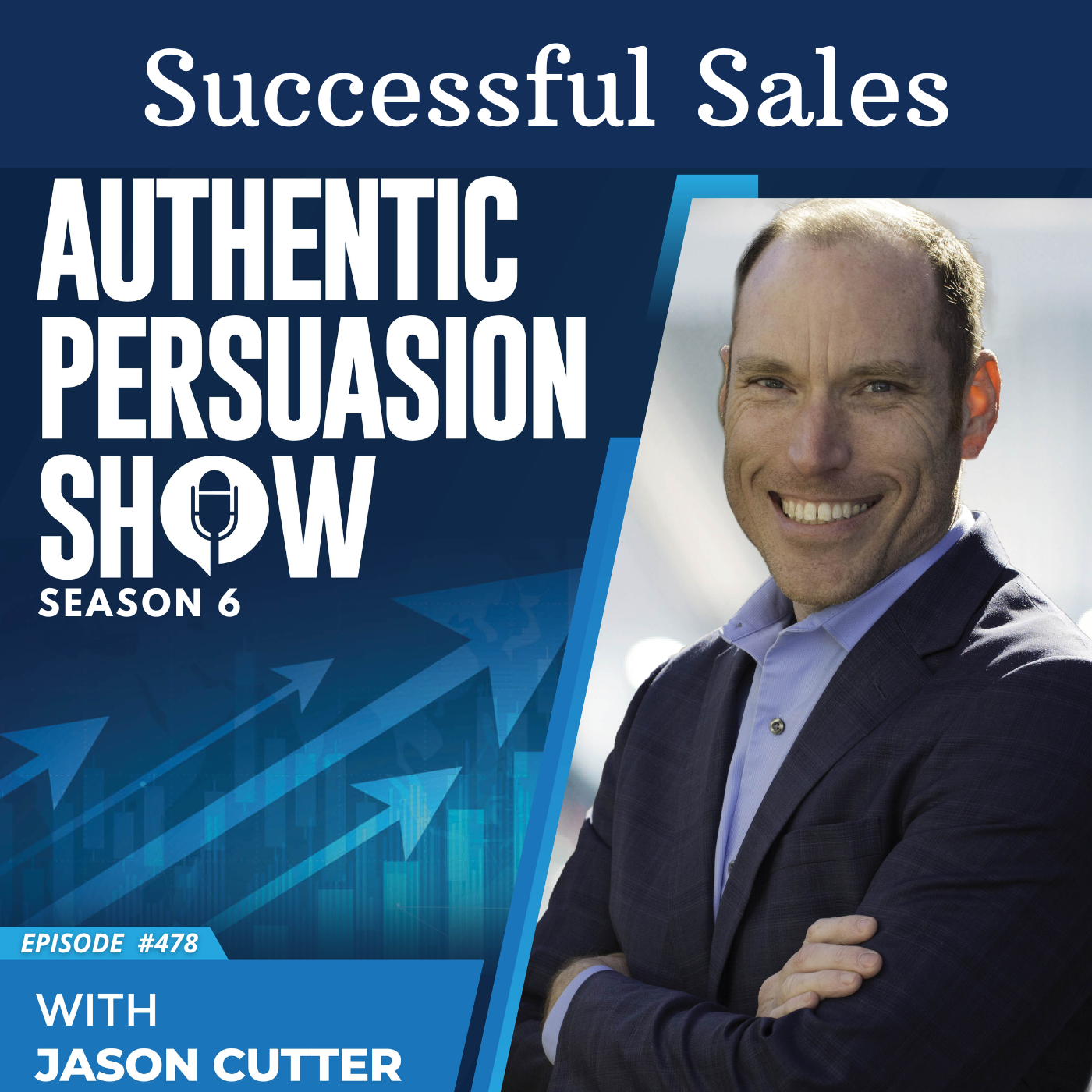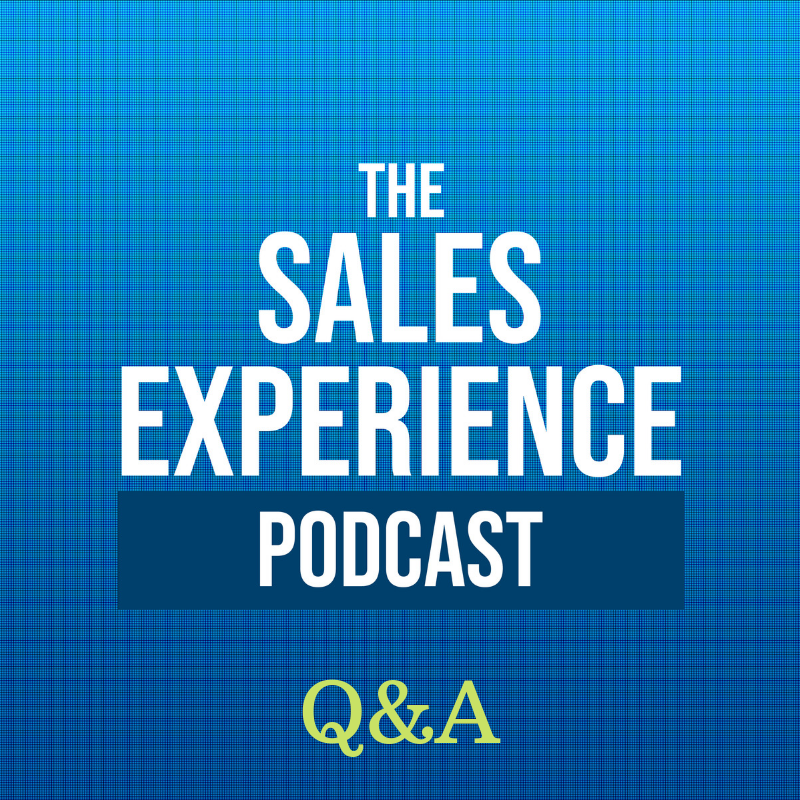Episode Transcript
Jason: Hey, what's going on. Welcome to the sales experience podcast. So glad that you're here on this guest episode. I have miss Christine, but Ticario and she is. Currently the chief revenue officer at resurface labs. And she loves technology, focusing on building storylines, high performing teams and pipelines through sales and marketing functions.
As she told me and sent me, she's happiest when collaborating, innovating and delivering. And she marries strategies. with execution. And what's interesting is that she is in this CRO role, chief revenue officer role, and it's been under a year and she's kind of doing it all. She's a single person sales team for the company as it's starting up and growing, but she has a long.
Lineage in being in roles of support product to marketing to sales and seeing the whole cycle and working her way up and through different departments in leadership roles at places like Cybase, S. A. P. Rally, Rogue Wave, K Post, where she got a lot of experience taking tech and going to market customer connections, acquisitions and all of that in our conversation that we have.
We go end to end. So we talk about the CRO role and bridging sales, marketing, and all those revenue ops departments and the challenges that can happen with that. We talk about sales. We talk about recruiting and deciding on when somebody should stay or go. And how do you help people win in their role and what it's like, we talk about compensation plans.
And then we even talk about the marketing side and web forms and how much information you should have on your forms on your website to get the right people to your team based on what your goals are. So here you go. Hopefully you enjoy this and make sure to connect with Christine best place. You can find her on LinkedIn is a great place to go.
You can also go to resurface. io, but here you go. Enjoy this conversation that I had with Christine. Christine, welcome to the sales experience podcast.
Christine: Well, thank you. It's nice to be part of this and it's a good day to do it on a Friday.
Jason: Yeah, I am excited. Any chance that I have to talk to someone from the CRO community, if you will, somebody who's bridging that gap.
I mean, anyone who's heard me talk or read anything from me knows that I want to do everything I can to abolish that divide between sales, marketing, sales. And everybody, if you will. And so I'm super supportive of this, what feels like a new title of Chief Revenue Officer.
Christine: Yeah, it's cool. And speaking of new, I am a new CRO.
So I've never carried that title before. So we'll learn together. That's for sure.
Jason: Well, which is fascinating because I had Daryl Prail from Vanilla Soft on the show recently. And he is a newly minted CRO. He spent a lot of time in sales in the past and then has been doing marketing for years. And then became a CRO at Vanilla Soft and his was the same thing.
Like he's learning and we were talking about his kind of first. 30, 60, 90 day journey. How long have you been in the CRO role? Like specifically?
Christine: Now, this is a good question. I started talking to the resurface folks, the team. So I'm one of the co founders. So this is earlier than I've ever been in. So lots of challenge there right around.
early April. So it's been a few months and we're in funding rounds and all kinds of startup stuff. So I thought now's the time to start carrying the bag and really own that part of the business. So it's been very cool to partner and learn along the way.
Jason: And you mean carry the bag as the old school term of getting out there and selling.
Christine: Yeah, I'm getting out there and selling and like right now I am the sales rep. So it's really interesting to know that the outcomes of conversations and next steps are on me. I don't kind of have to look at the other end of the table and say, okay, this is your job, do it. So it's on me and that's both exhilarating and frightening at the same time.
Jason: Super funny thought as you're talking. I'm wondering if sales person Christine inside complains to marketing Christine about the leads.
Christine: Yeah, exactly. She does. Yeah. And then the marketing, Christine complains about the lack of activity on the sales side. So you know, it's one thing to think about signing up for it.
It's another thing to have that responsibility. But that's something that I've always felt really close to throughout my whole career. I've always partnered with people collaborating. And so it's never like you do this, I do that. It's how do we all kind of focus on the same outcomes and make sure that success for all of us is defined similarly.
Jason: Where do you think that comes from? Because it's almost like you either have that attitude. Or you don't, and it's almost like a two party system in politics, where it's like, you're either at one extreme end, or you're at the other. You either believe in collaboration, and everyone should work together, or it's like, here is my fiefdom, and my silo, and everybody else.
Is there to serve me and again, not just picking on sales. I mean, any department can have that attitude.
Christine: Yeah, I think it's a really fair question and I don't know that I know the answer. I think there's a certain bit of wiring and I think for me early days I saw success from doing it. So I was trained pretty quickly to say if I partner with a sales rep, my outcomes are going to be that much better.
So why wouldn't I continue to do that? And fortunately, I say this with some degree of pride is that. I've never had an adversarial relationship with any of the sales leaders that I've worked with. And that's because I'm like, what's your goal is my goal. So how do we get there together? And I'm here to support you.
And I'm here to make sure that you look good because we're all trying to drive the business. So I think if you maybe have some bad experiences or you've hit a wall and felt like your success was hindered by other people, I think then you start building that wall even higher and thicker.
Jason: And what's interesting is I can think of people that I know professionally who have that collaborative mindset.
And they didn't necessarily raise that way, meaning it wasn't like they had a manager or a leader or a coach or a mentor who was like, here's what we do. And we work with customer service. We work with marketing and we team up with them from a sales side. People who were essentially, if we will, raised in a very us versus them department and, but then grew up to be collaborative and do things in that department and then beyond.
And so I think it's always fascinating that, I don't know, maybe you're either born with that attitude or you just realize like, Hey, it's much easier and better.
Christine: It is much easier. Yeah. And again, those early successes, right? You're going to do more of that. If you're like, Oh, that kind of worked. What does it look like to partner more thoroughly?
And more completely.
Jason: Yeah. So how much of your, let's say mindset success with that partnering part, which I think is super important for the CR role. And in my opinion, the basis of the CRO, the chief revenue officer is to tie sales, marketing, customer service, retention, any revenue operation together under one umbrella.
How much of your success in that mindset and the role comes from, I won't say starting out at the bottom, but starting off in completely other related departments or unrelated departments in your career.
Christine: Yeah, I think it has a lot to do with it, Jason. So early days, I think my first tech gig was through professional services.
So I figured out what it would look like to do business development and work with customers and solve their needs. And then it was into the product side on the product management and then into product marketing and then corporate marketing, customer programs and marketing and then now sales. And once you understand those other disciplines, maybe you have empathy.
For what the challenges are that they face like going at the product side and saying these people have very loud voices on the users to say this is what we need to build but then there's also how do we go and acquire new customers what are the features functionality attributes of the product that need to serve that and those can be competing so if you understand that Then maybe you can navigate a pathway forward to serve both of those.
So again, I think it comes from understanding it, having walked in the shoes of those functions and knowing that it's not like, Oh, the product people only want to do this or Oh, sales reps only want to do that. Like I get it. I was kind of one of them. So to have that empathy to understanding. And then kind of knowing how it all comes together, I think is a really critical piece of it to remove those silos and then look at everything a little bit more holistically.
Jason: I think that's just generally how you build empathy and have things like empathy and compassion for people in the world in general. When you can pull yourself away from it and imagine what the other person's dealing with, or you've been through enough life, capital L life, where you can. Closely walk in somebody else's shoes.
Like you've been there, I mean, everyone has a different experience whether you have loss or financial failure. It's like, you can't ever say like, ah, I know what that feels like. Cause you don't, but you can know pretty close, the more of that in the world. And then you take that into the business landscape and then you apply that to your role.
I think that's super, I mean, the more that you've been in the operational side, I know for me, like I. Always ran away from sales and tried to stay in the operational side and hide over there because I didn't want to deal with people. Um, and then when I would go into sales or be moved over to sales or leading sales teams, it was like, okay, sales, we're going to sell it like this because when that customer gets enrolled and goes to the back end, if you don't do it right, it's a hot mess over there.
So let's set them up correctly, right?
Christine: And a couple of things jump in my mind exactly to that. You don't always have to have done the job. But be curious and listen and talk to somebody. I'd be like, Jason, tell me about what's going on. Why would you build it this way? I'm curious. I'm not attacking. It's so learn.
And I figured that out when I was running the customer programs early days. And I got to tell you, Jason, of all the things that have ever scared me to death. It was picking up the customer program, and by that I meant all of the customers across all of the company to have find advocates and get them to do reference activities and get their stories.
But it taught me to listen, and I realized that was the number one thing is I didn't have to sell as much as I needed to absorb and listen and then apply and say, you know what, Jason, that's a great story. I'd love to profile you in a use case or I'd love to have you on a video. Can we talk about how that looks?
So it became natural. For me to really listen and understand and then you can build all the knowledge. The other thing just kind of going back to your earlier question is like, what does it look like outside in? So customers come to your website and they learn and they consume and then they maybe interact via chat or then they talk to a rep and all the kind of things that along the cycle, right?
And then they get the product. How consistent are we presenting ourselves? Is one story on the website when I learn in the products like, well, that's not at all true. Or when I talk to a reference customer, do they mirror that or do they talk about something else? I think that's really what drives me too, is to say, let's look outside in.
How are we presenting ourselves to our buyers, to our prospects, to our existing customers? And is that consistent? Because then you're setting up your sales team for a really difficult road. If they have to undo some of the learning that somebody's gotten from the website or from another conversation.
That's a hard thing to hand to a sales rep.
Jason: All right, that's it for part one of my conversation with Christina Bottagaro. And make sure to find her online, LinkedIn is a great place to go. And I will see you in part two tomorrow.
That's it for another episode of the Sales Experience Podcast. Thank you so much for listening.
If you find yourself on iTunes, can you leave the show a rating and a review? It helps other salespeople and sales leaders find the show. And please subscribe to the show and share episodes you find valuable with anyone you know in sales. Help me on my mission of changing the way sales is done. And if you're ready to work together, go to Jason cutter.com.
Again, that's Jason cutter. com to find out how I can help you or your company create scalable sales success. I will see you on the next sales experience podcast episode and keep in mind that everything in life is sales and people remember the experience you gave them.
![[E281] Leading As A CRO, with Christine Bottagaro (Part 1)](https://episodes.castos.com/salesexperiencepodcast/images/Season-3-TSEP-Covers-1.png)


